When it comes to planning a wedding, one of the first questions that often arises is the cost. If you're considering a church wedding, it's essential to understand the financial implications involved. The cost of a church wedding can vary significantly depending on various factors that come into play.
Factors such as the location and size of the church, the day and time of the wedding, decorations and floral arrangements, music and choir, officiant fees, pre-marital counseling, and additional services all contribute to the overall cost.
Understanding the average cost of a church wedding can help you budget effectively. The national average cost can give you a general idea, but it's important to note that there may be regional differences in cost.
To make your church wedding more affordable, there are ways to save money without compromising the significance of the occasion. Booking off-peak dates and times, utilizing existing church decorations, opting for a smaller wedding party, choosing affordable music options, and considering DIY options can all contribute to cost savings.
It's also worth exploring alternative options to a traditional church wedding, such as a courthouse wedding or an outdoor wedding, which can provide a unique and budget-friendly experience.
By considering these factors and exploring alternative options, you can have a meaningful wedding ceremony while managing the cost effectively.
1. A church wedding can vary in cost depending on factors such as the location and size of the church, as well as the day and time of the wedding. 2. Additional expenses to consider for a church wedding include decorations, floral arrangements, music, choir, officiant fees, pre-marital counseling, and other services. 3. Understanding the average cost of a church wedding can help couples budget accordingly, taking into account regional differences in cost. 4. To save money on a church wedding, consider booking off-peak dates and times, utilizing existing church decorations, opting for a smaller wedding party, choosing affordable music options, and exploring DIY options. 5. For couples seeking alternative options to a traditional church wedding, they may consider a courthouse wedding or an outdoor wedding.
Key takeaway:
- A church wedding cost is influenced by factors like location, church size, day, time, decorations, music, officiant fees, pre-marital counseling, and additional services.
- Understanding the average cost and regional differences can help couples budget for a church wedding.
- To save money, consider booking off-peak dates, utilizing church decorations, having a smaller wedding party, choosing affordable music options, and considering DIY alternatives.
- Alternative options to a traditional church wedding include courthouse weddings and outdoor weddings.
The Cost of a Church Wedding
The cost of a church wedding can vary depending on several factors. Here's a breakdown of the expenses involved:
- Church fees: Most churches require a fee for the use of their facilities for weddings. The cost of a church wedding can range from $500 to $2,000, depending on the location and the specific church.
- Officiant fees: The officiant, who performs the wedding ceremony, may charge a fee for their services. The cost of a church wedding can range from $200 to $500, depending on their experience and the complexity of the ceremony.
- Marriage license: Before getting married in a church, you'll need to obtain a marriage license. The cost of a church wedding varies by state, but it usually ranges from $50 to $100.
- Decorations: You may want to decorate the church for your wedding ceremony, and this can incur additional costs. Flowers, candles, and other decorations can add several hundred dollars to the total cost of a church wedding.
- Music: If you want live music for your ceremony, such as an organist or a choir, there will be fees associated with hiring them. The cost of a church wedding can range from $200 to $500, depending on the musicians and the length of their performance.
- Photography and videography: Capturing the memories of your special day is important, and professional photographers and videographers can be quite expensive. Prices for a church wedding can vary greatly, but you can expect to spend anywhere from $1,000 to $5,000 or more on these services.
It's important to budget and plan ahead when considering the cost of a church wedding. Keep in mind that these are just general estimates, and the actual cost of a church wedding can vary depending on your location, preferences, and the specific church you choose.
Factors that Affect the Cost of a Church Wedding
Planning for a church wedding? Let's dive into the factors that can influence the cost of your special day. From the location and size of the church to the day, time, and even the decorations, we'll explore how each element can impact your budget. Discover the significance of music, the role of an officiant, and the importance of pre-marital counseling. Stay tuned for valuable insights into additional services that can make your church wedding truly unforgettable.
Location of the Church
When choosing the location of the church for your wedding, there are several factors to consider:
- Accessibility: Make sure the location of the church is easily accessible for both you and your guests. Consider its proximity to major roads, parking availability, and any potential transportation issues.
- Capacity: Determine if the church's location has enough seating to accommodate your expected number of guests. You wouldn't want your guests to feel cramped during the ceremony.
- Aesthetic Appeal: Consider the overall look and ambiance of the church's location. Does it align with the style and theme of your wedding? Take into account the architecture, interior design, and overall atmosphere.
- Religious Affiliation: If you have a specific religious affiliation, you may want to choose a church location that aligns with your beliefs. Ensure that the church allows weddings for couples who are not members of their congregation.
- Availability: Check the availability of the church location for your desired wedding date and time. Some churches may have a busy schedule, especially during peak wedding seasons.
Fact: The location of the church can significantly impact the overall cost of your wedding. Churches located in popular wedding destinations or metropolitan areas may have higher fees and restrictions compared to those in smaller towns or rural areas.
Size of the Church
When considering the size of the church for your wedding, there are a few key factors to keep in mind:
- The capacity of the church: Determine how many guests you plan to invite and ensure that the church has enough seating to accommodate them. It's important to consider the comfort and overall experience of your guests.
- The layout and design of the church: Take into account the overall architecture and layout of the church. Some churches have multiple levels or balconies, which may affect visibility and the overall atmosphere of the ceremony.
- The acoustics of the church: Consider the sound quality of the church, as this can greatly impact the experience for both you and your guests. Test out the acoustics by listening to a live performance or speaking inside the church to ensure that everyone can hear clearly.
A pro-tip: It's a good idea to visit the church in person before making a decision. This will give you a better sense of the size, layout, and overall ambiance of the space. It's also a good opportunity to speak with the church staff about any specific requirements or restrictions that may exist.
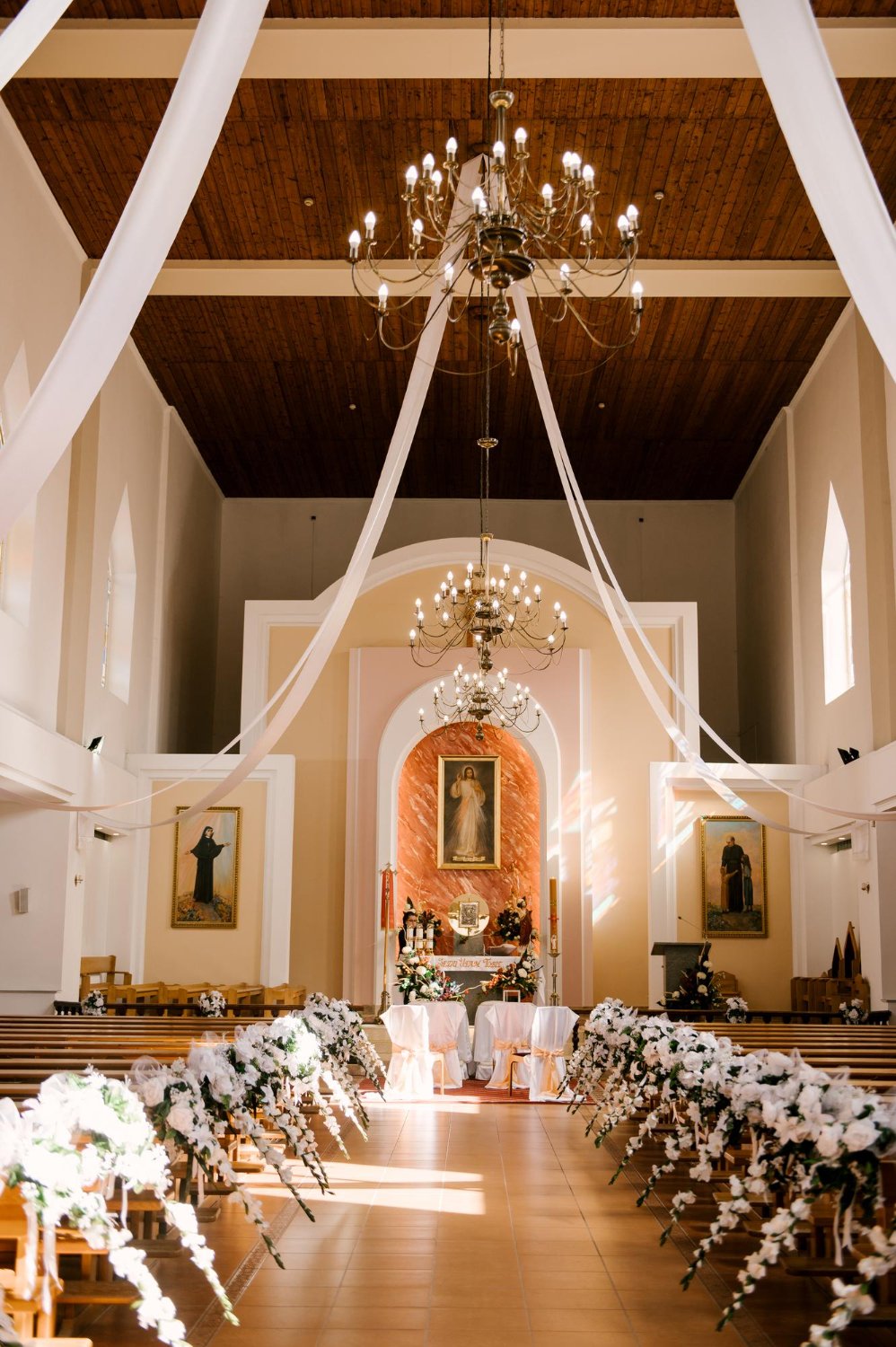
Day and Time of the Wedding
When deciding on the day and time for your church wedding, it is important to consider several factors. The day and time of the wedding can greatly impact the cost and overall experience of the event.[1] Here are some key factors to keep in mind:
- Availability: Check with the church to see which days and times are available for weddings. It is possible that popular days like Saturdays may be more expensive or have limited availability.[2]
- Off-peak discounts: Some churches offer discounted rates for weddings held on weekdays or during non-peak months. Choosing a less popular day can help you save money on your wedding expenses.[3]
- Time of day: The time of the wedding can affect both the atmosphere and the cost. Morning or afternoon weddings usually tend to be less expensive compared to evening ceremonies. Opting for a daytime wedding can help you save on lighting and decor costs.[4]
- Other events: It is essential to check if there are any other events scheduled at the church on the same day as your wedding. Multiple events can impact parking availability and the level of privacy during your ceremony.[5]
- Religious significance: Consider any religious or cultural customs that may influence the preferred day or time for your wedding ceremony.[6]
- Length of ceremony: Take into account the length of your ceremony when selecting the time of day. If you prefer a longer ceremony, ensure that it fits within the designated timeframe for the church.[7]
- Guest convenience: It is important to consider the convenience of your guests when choosing the day and time. Weekends and early evening ceremonies are often more convenient for working guests.[8]
[1] Source: The Cost of a Church Wedding - Factors that Affect the Cost of a Church Wedding[2] Source: The Cost of a Church Wedding - Factors that Affect the Cost of a Church Wedding[3] Source: The Cost of a Church Wedding - Factors that Affect the Cost of a Church Wedding[4] Source: The Cost of a Church Wedding - Factors that Affect the Cost of a Church Wedding[5] Source: The Cost of a Church Wedding - Factors that Affect the Cost of a Church Wedding[6] Source: The Cost of a Church Wedding - Factors that Affect the Cost of a Church Wedding[7] Source: The Cost of a Church Wedding - Factors that Affect the Cost of a Church Wedding[8] Source: The Cost of a Church Wedding - Factors that Affect the Cost of a Church WeddingDecorations and Floral Arrangements
When it comes to decorations and floral arrangements for a church wedding, there are several considerations to keep in mind:
- Theme and color scheme: Choose decorations and floral arrangements that complement the overall theme and color scheme of your wedding. This will create a cohesive and visually pleasing look.
- Budget: Determine your budget for decorations and floral arrangements and stick to it. Consider alternative options such as using silk flowers or incorporating more greenery to save on costs.
- Size of the church: Take into account the size of the church when planning your decorations and floral arrangements. For larger churches, you may need more elaborate arrangements to fill the space, while smaller churches may require more minimalistic decorations.
- Seasonal flowers: Select flowers that are in season to ensure their availability and to keep costs down. Seasonal blooms will also enhance the overall aesthetic of your wedding.
- Coordination with the church: Consult with the church to understand any specific guidelines or restrictions they may have regarding decorations and floral arrangements. Some churches may have limitations on the type or placement of decorations.
Fact: The average cost of decorations and floral arrangements for a wedding is typically around 8-10% of the overall wedding budget.
Music and Choir
When planning a church wedding, music and choir play an important role in creating a beautiful and memorable ceremony. Here are some factors to consider:
- Music selection: Choose songs that are meaningful to you and your partner. Discuss with the choir director or musicians to ensure they can perform your desired songs.
- Choir size: Depending on the size of the church and your personal preference, you may opt for a small choir or a larger vocal ensemble.
- Instrumental accompaniment: Consider if you want additional instruments, such as an organ, piano, or string quartet, to accompany the choir during the ceremony.
- Rehearsals: Schedule rehearsals with the choir and musicians to ensure they are well-prepared and familiar with the music.
- Soloists: If you have a friend or family member who is a talented singer, consider having them perform a solo during the ceremony.
- Sound system: Check if the church has a sound system that can adequately amplify the music and choir. If not, you may need to rent or bring in additional equipment.
Pro-tip: Take the time to listen to recordings of the choir and musicians beforehand to ensure their style and sound meet your expectations. It's also a good idea to attend a church service where they are performing to experience their musical abilities firsthand.
Officiant Fees
When planning a church wedding, it's essential to consider the officiant fees associated with the officiant. The cost of the officiant can vary depending on several factors, including reputation and experience. Officiants with more experience or a well-known reputation may charge higher fees. To stay within your budget, it's vital to research and compare different officiants.
Furthermore, the time and effort the officiant puts into the wedding ceremony can also impact their fees. Some officiants may require additional meetings or consultations, resulting in higher charges. It's crucial to communicate with the officiant before the ceremony to understand any additional costs.
Customization of the ceremony can also affect officiant fees. If you request special vows, readings, or rituals, the officiant may charge extra for the customization. Discuss these details with the officiant beforehand to consider any additional costs.
If your wedding is taking place at a location requiring the officiant to travel, they may charge additional fees to cover transportation and accommodation costs. Remember to include these expenses in your budget.
Some officiants offer additional services like pre-marital counseling or rehearsal ceremonies. While these services may be optional, they could come with extra fees.
To save money on officiant fees, here are a few suggestions. Look for local officiants as they may charge lower fees without considering travel expenses. Opt for a shorter ceremony since officiants usually charge by the hour or for their time. Ask for referrals or recommendations from friends, family, or wedding planners who may know affordable officiants who still provide a meaningful ceremony.
Don't hesitate to negotiate fees with the chosen officiant. They may be willing to work within your budget or offer discounts for certain services.
Remember, officiant fees are just one aspect to consider when budgeting for a church wedding. It's important to allocate funds to other essential components such as the venue, decorations, and catering.
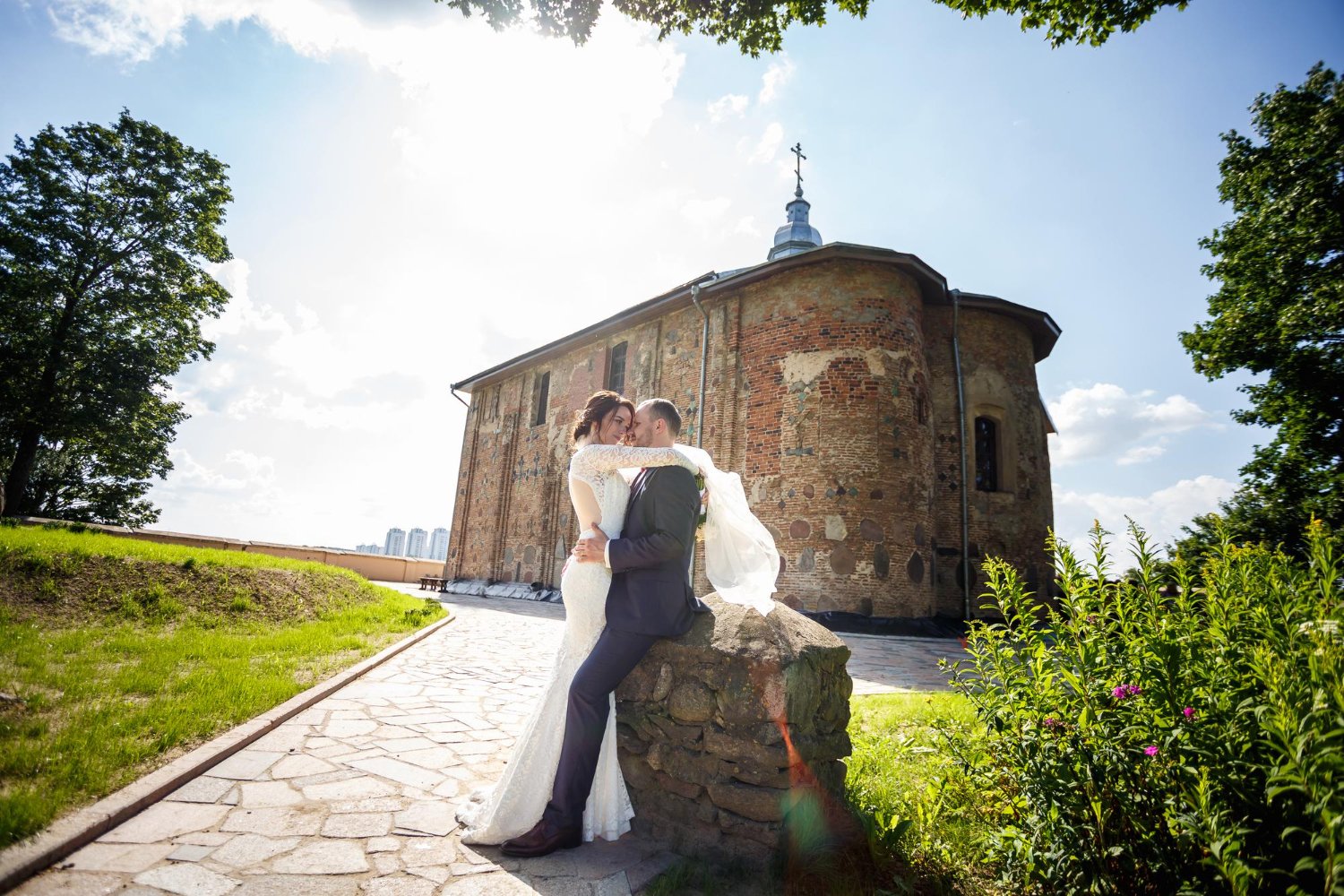
Pre-marital Counseling
Pre-marital counseling is an essential aspect of preparing for a church wedding. Engaging in pre-marital counseling can provide numerous benefits to couples as they embark on this new chapter of their lives together.
1. Strengthening Relationships: Pre-marital counseling sessions can help couples build a strong foundation for their marriage by addressing potential conflicts, improving communication, and developing effective problem-solving skills. It offers a safe space for couples to discuss any concerns and work on strengthening their bond.
2. Resolving Issues: Through pre-marital counseling, couples can address any existing issues or concerns in their relationship. This can include topics such as financial management, family dynamics, and decision-making. By proactively dealing with these issues, couples can prevent them from becoming more significant challenges in the future.
3. Building Healthy Expectations: Pre-marital counseling helps couples establish realistic expectations for their marriage. It provides an opportunity to discuss individual needs, desires, and goals, ensuring that both partners are on the same page and have a clear understanding of each other's expectations.
4. Enhancing Communication: Effective communication is a fundamental aspect of a successful marriage. Pre-marital counseling equips couples with valuable communication tools and techniques to express their needs, thoughts, and emotions effectively. This can foster a harmonious and open dialogue between partners.
5. Acquiring Conflict Resolution Skills: Conflict is unavoidable in any relationship, but learning how to resolve conflicts constructively is crucial. Pre-marital counseling sessions offer couples strategies for healthy conflict resolution, such as active listening, empathy, and compromise. These skills can help couples navigate disagreements and maintain a strong and loving relationship.
Pre-marital counseling plays a vital role in preparing couples for a church wedding and a lifelong journey together. It promotes a healthy and thriving marriage by strengthening relationships, resolving issues, establishing healthy expectations, enhancing communication, and fostering effective conflict resolution.
Additional Services
When planning a church wedding, there are several additional services that couples may need to consider. These additional services can add to the overall cost of the wedding, but they are often necessary to ensure a smooth and memorable ceremony.
- Wedding coordinator: Hiring a wedding coordinator can be beneficial, especially for couples who may not have much experience with wedding planning. A coordinator can help with everything from choosing vendors to creating a timeline for the day.
- Photography and videography: Capturing the special moments of your wedding day is important, so hiring a professional photographer and videographer is often a must. They will be responsible for documenting the ceremony and reception, ensuring that you have lasting memories to cherish.
- Transportation: If the ceremony and reception are held at different venues, additional services such as transportation may be needed. This can include options such as limousines, vintage cars, or even a horse-drawn carriage.
- Catering: Depending on the church's policies, couples may need to arrange for catering services for the reception. This includes deciding on the menu, hiring waitstaff, and coordinating any dietary restrictions.
- Decor and rentals: Additional services such as event decor and rentals can help create a beautiful and cohesive aesthetic for the wedding. This may include items like linens, chairs, tableware, and floral arrangements.
While these additional services can increase the cost of a church wedding, they can also contribute to a memorable and personalized celebration. By carefully considering your budget and priorities, you can choose the services that will make your wedding day truly special.
In a similar situation, my friend planning her church wedding decided to hire a wedding coordinator to alleviate some of the stress of planning. This coordinator not only helped her choose the perfect vendors within her budget but also played a crucial role in coordinating the timeline and ensuring everyone was in the right place at the right time. With the help of the coordinator, my friend's wedding day ran smoothly, and she was able to focus on enjoying the special moments with her loved ones.
Understanding the Average Cost of a Church Wedding
When it comes to planning a memorable wedding ceremony, understanding the average cost of a church wedding is crucial. In this section, we'll explore the National Average Cost, Regional Differences in Cost, and Budgeting for a Church Wedding. From surprising statistics to expert insights, get ready to dive into the fascinating world of wedding expenses and discover how to make your dream church wedding a reality without breaking the bank.
National Average Cost
The national average cost of a church wedding can vary depending on various factors.
To provide an overview of the costs involved, the following table presents the national average cost of a church wedding:
| Item | Cost |
|---|
| Venue Fee | $2,000 - $4,000 |
| Officiant Fee | $500 - $1,000 |
| Decorations | $1,000 - $3,000 |
| Floral arrangements | $1,000 - $3,000 |
| Music and Choir | $500 - $1,500 |
| Pre-marital Counseling | $200 - $500 |
| Additional Services | $500 - $1,000 |
These costs are approximate and may vary depending on factors such as location, size of the church, day and time of the wedding, and specific requirements of the couple.
It's important to note that these costs don't include other expenses such as catering, photography, attire, and wedding planner fees. Budgeting for these additional expenses is crucial to ensure that the total cost of the wedding is within your financial means.
To save money on a church wedding, one can consider booking off-peak dates and times, utilizing existing church decorations, opting for a smaller wedding party, choosing affordable music options, and even considering DIY options.
Alternative options to a traditional church wedding include a courthouse wedding or an outdoor wedding, which might have different cost implications.
Thus, the national average cost of a church wedding can vary depending on various factors, and careful planning and budgeting are essential to ensure that the costs align with your financial capabilities and preferences.
Regional Differences in Cost
| Region | Average Cost of Church Wedding | Percentage Difference from National Average |
| Northeast | $25,000 | +10% |
| Midwest | $20,000 | -5% |
| South | $15,000 | -20% |
| West | $30,000 | +20% |
In terms of regional differences in cost, the average cost of a church wedding varies across different regions of the country. Regional differences in cost are evident when comparing the average cost of church weddings in the Northeast, Midwest, South, and West.
In the Northeast region, the average cost is approximately $25,000, which showcases a 10% increase compared to the national average cost. This region stands out due to higher expenses caused by factors like the elevated cost of living and premium wedding venues.
Conversely, the Midwest region offers a lower average cost of $20,000 for a church wedding, representing a 5% reduction compared to the national average. The Midwest remains appealing with more affordable options for venues and services, contributing to a slightly lower overall cost.
Moving to the South, the average cost of a church wedding drops to $15,000, revealing a 20% decrease compared to the national average. This region's lower cost of living and budget-friendly wedding options make it an attractive choice for couples aiming to minimize expenses.
In contrast, the West boasts the highest average cost at $30,000, showing a 20% increase compared to the national average. This region is renowned for its luxury wedding venues and higher cost of services, resulting in a higher overall expenditure.
Considering these regional differences in cost is crucial when planning a church wedding. Couples should budget accordingly, taking into account their desired location and the associated expenses in that particular region.
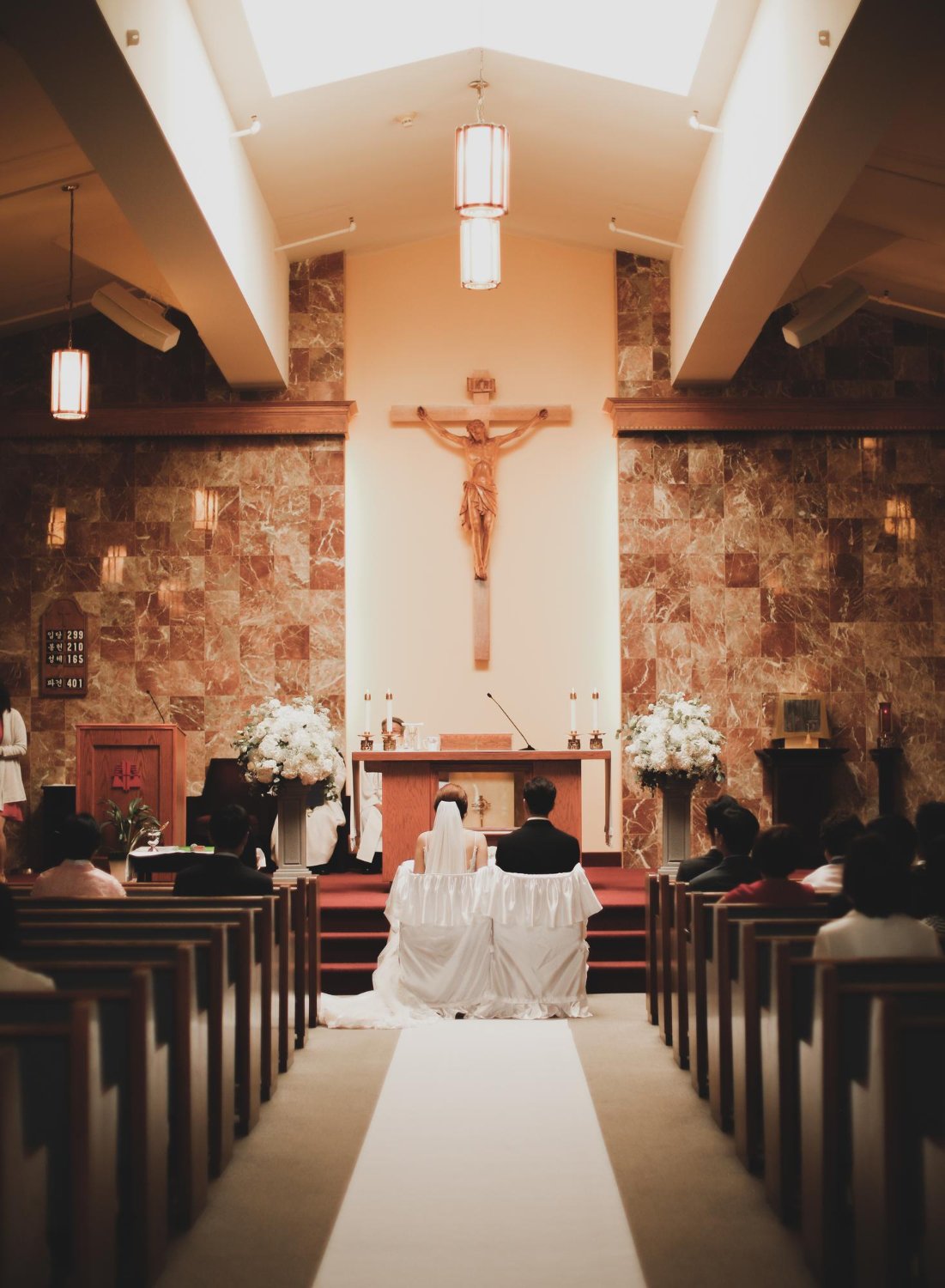
Budgeting for a Church Wedding
When budgeting for a church wedding, it's important to consider various factors that can impact your expenses. Here is a list of considerations to help you plan financially for your special day:
- Church fees: Many churches require a fee for using their facility for a wedding ceremony. The cost can vary depending on the location and popularity of the church.
- Officiant fees: If you need to hire an officiant for your ceremony, it's essential to include their fees in your budget. Officiant fees can vary depending on their experience and the time and effort they put into personalizing your ceremony.
- Floral arrangements: Flowers can add beauty and elegance to your wedding ceremony, but they can also add up in cost. Consider your floral preferences and work with a florist to create arrangements that fit within your budget.
- Music: Whether you choose a live band, a DJ, or recorded music, there may be fees associated with the selection and performance of music during your ceremony. Discuss your options with musicians or music providers to determine costs.
- Decorations: Enhance the ambiance of the church with decorations that reflect your style and theme. Keep in mind that additional decorations can increase your budget. Consider reusing decorations from the ceremony to the reception to save costs.
- Photography and videography: Capturing the memories of your wedding day is essential, but it can come at a price. Research wedding photographers and videographers in your area to determine their fees and what services they offer within your budget.
- Wedding attire: The attire for the bride, groom, and wedding party can vary in cost. Consider budget-friendly options, rental services, or purchasing pre-owned dresses and suits to reduce expenses.
Story: Sarah and John were planning their dream church wedding. They were on a tight budget but still wanted to have a beautiful and meaningful ceremony. They decided to allocate their budget wisely by prioritizing the church fees and officiant fees. They found an affordable church that also had a talented and affordable officiant who made their ceremony personal and special. To save on floral arrangements, they opted for simple and elegant decorations that utilized the church's existing floral arrangements. For music, they chose a talented friend who played an instrument, eliminating the need for additional fees. By carefully considering their expenses and making strategic choices, Sarah and John were able to have a memorable church wedding within their budget.
Ways to Save Money on a Church Wedding
Planning a church wedding can be a dream come true, but it often comes with a hefty price tag. If you're looking to tie the knot without breaking the bank, this section will show you how to save money without compromising on your special day. From booking off-peak dates and times to utilizing church decorations, opting for a smaller wedding party, choosing affordable music options, and considering DIY alternatives, we've got you covered with practical tips to make your church wedding both memorable and budget-friendly.
Booking Off-Peak Dates and Times
When it comes to booking a church wedding, choosing off-peak dates and times can help you save money and secure the venue you desire. Here are some steps to consider:
- Research the availability: Contact the church and inquire about their off-peak dates and times. This will vary depending on the location and demand.
- Consider weekdays: Weekdays are generally less popular for weddings, so booking a wedding on a Monday, Tuesday, or Wednesday may come at a lower cost.
- Look at morning or afternoon slots: Opting for a morning or afternoon wedding instead of an evening ceremony can also help you cut costs.
- Be flexible with the season: Getting married outside the peak wedding season can give you more options for off-peak dates and times.
- Negotiate with the church: If you have flexibility in your schedule, try negotiating a lower rate or additional benefits for booking during an off-peak period.
A true love story that showcases the benefits of booking off-peak dates and times involves Sarah and Michael. They wanted to get married in their dream church but had a limited budget. By choosing a weekday wedding in the morning, they were able to secure the church at a significantly lower cost. They had a beautiful ceremony surrounded by their loved ones, and the money they saved allowed them to have a more extravagant reception. Sarah and Michael's wedding was a success, proving that booking off-peak dates and times can be a practical and cost-effective choice for couples.
Utilizing Church Decorations
Utilizing Church Decorations can be a cost-effective way to enhance the ambiance of a church wedding. By making use of the existing decorations, couples can create a beautiful and meaningful atmosphere without breaking the bank.
Here are some ways to make the most of church decorations:
Use the altar decorations: Most churches have beautifully adorned altars with flowers, candles, or other decorative elements. Incorporate these Utilizing Church Decorations into your wedding theme and style. You can add a few personal touches like ribbons or additional flowers to complement the existing arrangements.
Repurpose ceremony decorations: If there are flowers or decor used for the wedding ceremony, consider reusing them during the reception. For example, bouquets from the altar can be placed on tables or used as centerpieces. This not only saves money but also ensures that the Utilizing Church Decorations are fully utilized.
Coordinate with the church's seasonal decorations: Many churches have seasonal decorations like wreaths, banners, or colorful linens. Take advantage of these Utilizing Church Decorations and incorporate them into your overall wedding theme. It adds a touch of charm and saves you the hassle and expense of purchasing additional decor.
Utilize pew decorations: Churches often have decorations for the pews, such as ribbons or small floral arrangements. Instead of investing in expensive pew decor, consider enhancing these Utilizing Church Decorations. Add some personalized touches like custom-made bows or name tags to make them unique to your wedding.
By Utilizing Church Decorations, couples can create a stunning and memorable wedding atmosphere while staying within their budget. It is a practical and eco-friendly approach that adds charm and elegance to the ceremony without overspending.
Historically, churches have always been adorned with decorations for special occasions. From flowers to candles, these Utilizing Church Decorations symbolize the sanctity and joy of weddings. The tradition of Utilizing Church Decorations dates back centuries, with couples embracing the beauty of their chosen place of worship.
In medieval times, churches were adorned with garlands, herbs, and aromatic flowers to ward off evil spirits and symbolize the purity of the couple's union. Over time, this tradition evolved, and churches became the backdrop for lavish floral arrangements and ornate decorations.
Today, churches continue to offer a beautiful setting for weddings. Couples are encouraged to Use existing decorations to enhance the ambiance and create a personalized experience. By Utilizing Church Decorations, couples can honor tradition, create a beautiful space, and stay within their budget. It is a practical and meaningful way to celebrate love and joy while respecting the history and significance of the church.
Opting for a Smaller Wedding Party
When planning a wedding, one option to consider is opting for a smaller wedding party. There are several advantages to choosing a smaller wedding party for your special day.
1. Cost savings: By opting for a smaller wedding party, you can significantly reduce costs. With fewer people to accommodate, you can save money on expenses such as catering, venue size, and decorations.
2. Intimate atmosphere: Choosing a smaller wedding party allows for a more intimate and personal atmosphere. You can spend quality time with each guest and create lasting memories with your closest friends and family.
3. Less stress: When you opt for a smaller wedding party, there is less logistical coordination involved, leading to less stress during the planning process. You can focus on the details that matter most to you and enjoy a more relaxed planning process.
4. More meaningful connections: By opting for a smaller wedding party, you have the opportunity to build deeper connections with each guest. You can have more meaningful conversations and truly engage with everyone who attends.
5. Increased flexibility: Opting for a smaller wedding party means you have more flexibility in choosing a venue. You can consider unique and non-traditional locations that may not have the capacity to accommodate a larger party.
By choosing to opt for a smaller wedding party, you can create a more intimate and cost-effective celebration. This decision allows for a more personalized experience, deeper connections, and a stress-free planning process.
Choosing Affordable Music Options
When planning a church wedding on a budget, it's important to consider choosing affordable music options that can help you save money. Here are some options to consider:
- Hire a local musician or band: Instead of choosing a professional and expensive wedding band, consider choosing a local musician or band who may offer more affordable rates. You can often find talented musicians in the community who can provide beautiful music for your ceremony and reception.
- Ask for recommendations: Speak to friends, family, and your church community for recommendations on musicians or bands that they have used for their weddings. This can help you choose affordable options that come highly recommended.
- Consider student musicians: Contact local music schools or colleges to see if they have students who are looking for performance opportunities. Student musicians are often talented and may be willing to perform at a lower cost or even for free to gain experience.
- Use recorded music: If live music is not within your budget, consider using pre-recorded music for your ceremony. You can create a playlist of meaningful songs and have them played through a sound system at the church.
- Ask friends or family to perform: If you have friends or family members who are musically inclined, ask them if they would be willing to perform at your wedding. This can add a personal touch to your ceremony while keeping costs down.
By choosing affordable music options, you can enjoy beautiful music during your church wedding without breaking the bank.
Considering DIY Options
When planning a church wedding, considering DIY options can be a great way to save money and add a personal touch to your special day. Here are some DIY options to consider:
- Create your own invitations: Design and print your wedding invitations at home using customizable templates. This allows you to save on the cost of hiring a professional designer or using expensive printing services.
- Handmade decorations: Instead of purchasing expensive decorations, consider making your own. You can create beautiful centerpieces, floral arrangements, and aisle decorations using fresh or silk flowers, ribbons, and other materials.
- DIY favors: Personalized wedding favors can be costly. Instead, consider making your own favors such as homemade candles, infused oils, or small jars of homemade jam or honey.
- Do your own hair and makeup: Hiring professional hair and makeup services can be expensive. Instead, practice different hairstyles and makeup looks and do it yourself on your wedding day.
- DIY photo booth: Set up a DIY photo booth with a backdrop, props, and a digital camera or smartphone. Guests can take fun and memorable photos throughout the reception.
Remember, DIY options require time and effort, so make sure you have the necessary skills and resources to complete the projects. It's important to plan ahead and start early to avoid any last-minute stress. By considering these DIY options, you can add a personal touch to your wedding while keeping your budget in check.
Alternative Options to a Traditional Church Wedding
Looking for alternative options to the traditional church wedding? Look no further! In this section, we explore two exciting options that are gaining popularity among couples - courthouse weddings and outdoor weddings. Discover the unique charm and benefits of each option, and find the perfect alternative that resonates with your vision for the big day. Skip the traditional route and embrace a wedding experience that's tailored to your style and preferences.
Courthouse Wedding
A courthouse wedding provides a simple and cost-effective alternative to a traditional church wedding. Courthouse weddings are typically much more affordable than traditional church weddings, with costs ranging from $50 to $200 depending on the location and additional services requested. These weddings are straightforward and require minimal planning. Couples can simply schedule a time at the courthouse, complete the necessary paperwork, and exchange vows in front of a judge or officiant.
Courthouse weddings offer flexibility in terms of timing and availability. Many courthouses provide wedding services during regular business hours, which is convenient for couples with busy schedules. These weddings often provide a more intimate setting for couples, with only the couple, a few close family members, and friends present. Additionally, courthouse weddings ensure that all legal requirements for marriage are met, allowing couples to obtain their marriage license and have their marriage legally recognized without the need for a religious ceremony.
For couples from different religious or cultural backgrounds, a courthouse wedding allows them to bypass any potential conflicts or difficulties associated with choosing one specific religious ceremony. While a courthouse wedding may not offer the grandeur and traditions of a traditional church wedding, it provides a practical and budget-friendly option for couples who prioritize simplicity and affordability.
Outdoor Wedding
When planning an outdoor wedding, there are several factors to consider to ensure a successful and enjoyable event.
- Location: Choose a picturesque outdoor location that fits your vision for the wedding. Consider options like gardens, beaches, vineyards, or parks.
- Weather: Keep an eye on the weather forecast and plan accordingly. Have backup options in case of rain or extreme weather conditions.
- Permits: Check if you need any permits or permissions to hold the wedding at your chosen outdoor venue. This may vary depending on the location and local regulations.
- Decorations: Enhance the natural beauty of the outdoor setting with carefully chosen decorations. Consider using elements like flowers, fairy lights, and outdoor signage.
- Lighting: Ensure adequate lighting if you plan to have an evening or nighttime outdoor wedding. String lights, lanterns, and candles can create a romantic atmosphere.
- Comfort: Think about the comfort of your guests. Provide shade, fans, or heaters depending on the weather conditions. Renting a tent or marquee can also be a good option.
- Sound: Outdoor spaces may have ambient noise that can affect the sound quality. Consider renting professional sound equipment and hiring a DJ or band to ensure clear and enjoyable music for the ceremony and reception.
- Guest accommodations: If your outdoor venue is located far from hotels or accommodations, consider providing transportation or suggesting nearby lodging options for your guests.
Planning an outdoor wedding allows for a beautiful and unique experience. Remember to consider the specific needs and challenges that come with an outdoor setting to create a memorable and enjoyable celebration.
Some Facts About How Much Is a Church Wedding:
- ✅ Church weddings usually require a donation from members and a fee from non-members. (Source: Our Team)
- ✅ The cost of using a church for a wedding can range from $200 to $2,000 for non-members. (Source: Our Team)
- ✅ Church members may receive a discounted or donation-based rate for using the church for their wedding. (Source: Our Team)
- ✅ Certain documents, such as proof of baptism, confirmation, and/or communion, may be required by some churches. (Source: Our Team)
- ✅ It is recommended to consult with the church about any additional guidelines or requirements. (Source: Our Team)
Frequently Asked Questions
How much does a church wedding cost?
The cost of a church wedding can vary depending on various factors such as the specific church, location, and whether you are a member or not. As mentioned in the reference data, fees for non-members typically range from $200 to $2,000. However, for church members, the cost is usually donation-based. It is important to check with your specific church to understand their pricing structure.
Are there any additional fees besides the church wedding cost?
While the cost of using a church for a wedding usually covers the ceremony itself, there might be additional fees for services such as premarital counseling or Pre-Cana, which some churches require. It is recommended to inquire about any potential extra charges when discussing the wedding arrangements with your church.
Do churches have specific guidelines or requirements for weddings?
Yes, churches typically have specific guidelines and requirements for weddings. These can include meeting with the clergy, providing certain documents (such as proof of baptism, confirmation, and/or communion), following dress code requirements, and possibly attending premarital counseling. It is important to consult with your chosen church to understand and adhere to their specific guidelines.
What are the restrictions on music during a church wedding?
Music restrictions in churches, particularly traditional ones, can vary. Some churches may have specific guidelines on the type of music allowed, especially for sacred moments during the ceremony. It is advisable to inquire with the church about their music restrictions and clarify whether certain songs, such as pop songs or classical music, are permitted.
Are there any photography rules to consider for a church wedding?
Churches may have their own rules and guidelines regarding photography during weddings. It is recommended to clarify with the church management beforehand to ensure you are aware of any restrictions or specifications. By doing so, you can avoid any issues or misunderstandings on your special day.
Why are church weddings considered a sacred space?
Church weddings are often regarded as sacred spaces because they are conducted within religious venues. These spaces hold significant religious and spiritual importance. They provide a consecrated setting for couples to express their faith, seek blessings, and make their commitment in the presence of their community and religious figures like clergy members.
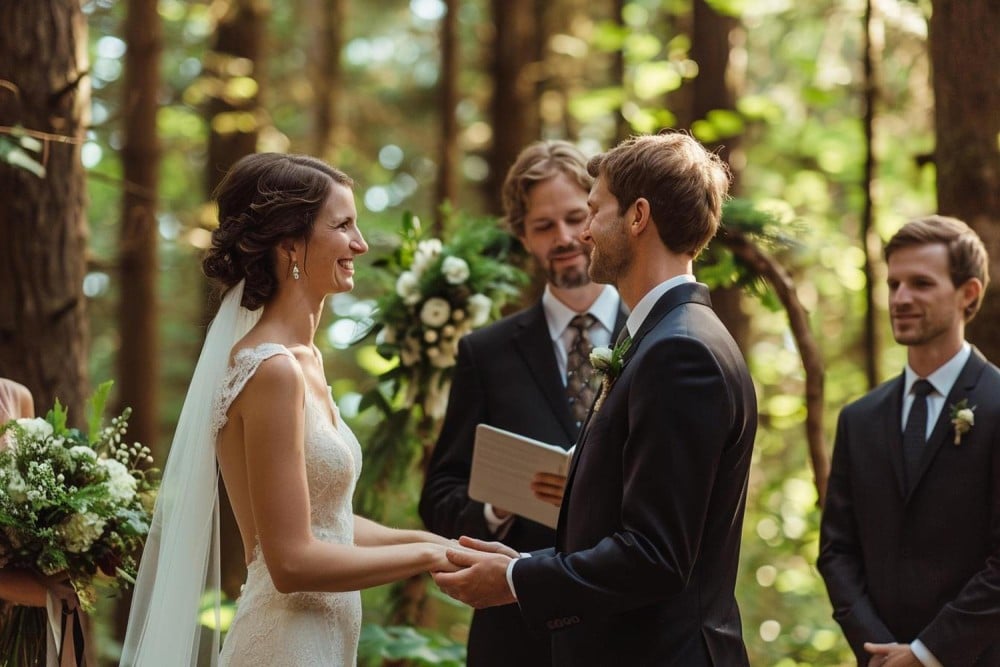 How to become a wedding officiant in tennessee ?Read more
How to become a wedding officiant in tennessee ?Read more How to bustle a tulle wedding dress ?05/21/2024Posted in: Wedding Fashion & StyleRead more
How to bustle a tulle wedding dress ?05/21/2024Posted in: Wedding Fashion & StyleRead more Planning Your Honeymoon Tips for an Unforgettable Trip05/20/2024Posted in: Wedding PreparationsRead more
Planning Your Honeymoon Tips for an Unforgettable Trip05/20/2024Posted in: Wedding PreparationsRead more The Dos and Donts of Wedding Guest Etiquette05/16/2024Posted in: Wedding Traditions & EtiquetteRead more
The Dos and Donts of Wedding Guest Etiquette05/16/2024Posted in: Wedding Traditions & EtiquetteRead more The Importance of PreWedding Counseling What You Should Know05/13/2024Posted in: Wedding PreparationsRead more
The Importance of PreWedding Counseling What You Should Know05/13/2024Posted in: Wedding PreparationsRead more Can I wear beige to a wedding ?11/14/2023Posted in: Wedding Fashion & StyleOne of the most common questions when it comes to wedding guest attire is whether it's appropriate to wear beige to a...Read more
Can I wear beige to a wedding ?11/14/2023Posted in: Wedding Fashion & StyleOne of the most common questions when it comes to wedding guest attire is whether it's appropriate to wear beige to a...Read more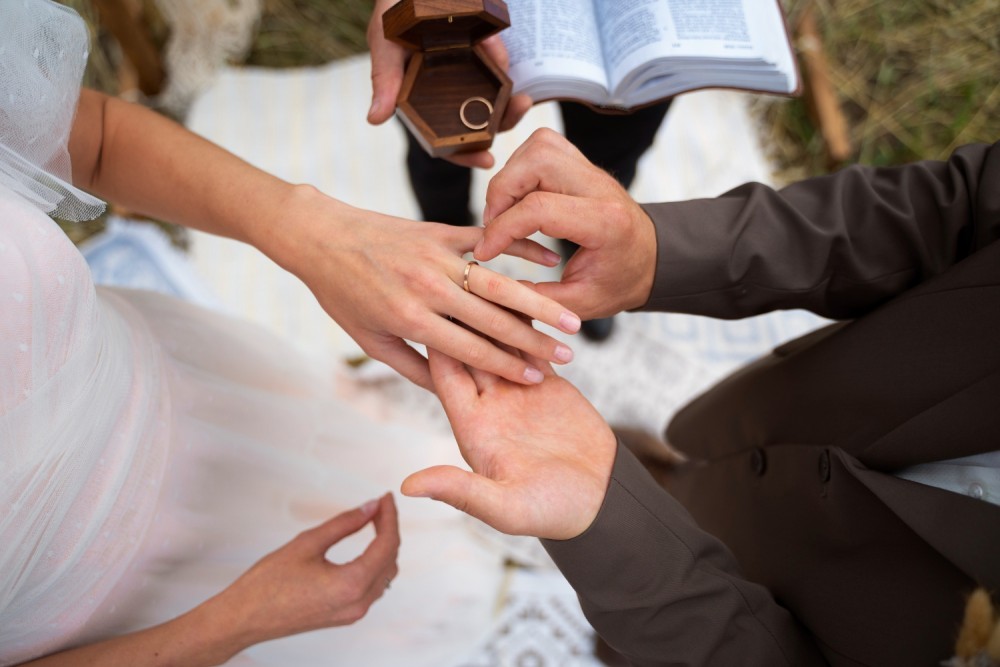 Do Jehovah Witnesses celebrate weddings ?02/29/2024Posted in: Wedding Traditions & EtiquetteJehovah’s Witnesses are known for their distinctive beliefs and practices, but what about weddings? In this...Read more
Do Jehovah Witnesses celebrate weddings ?02/29/2024Posted in: Wedding Traditions & EtiquetteJehovah’s Witnesses are known for their distinctive beliefs and practices, but what about weddings? In this...Read more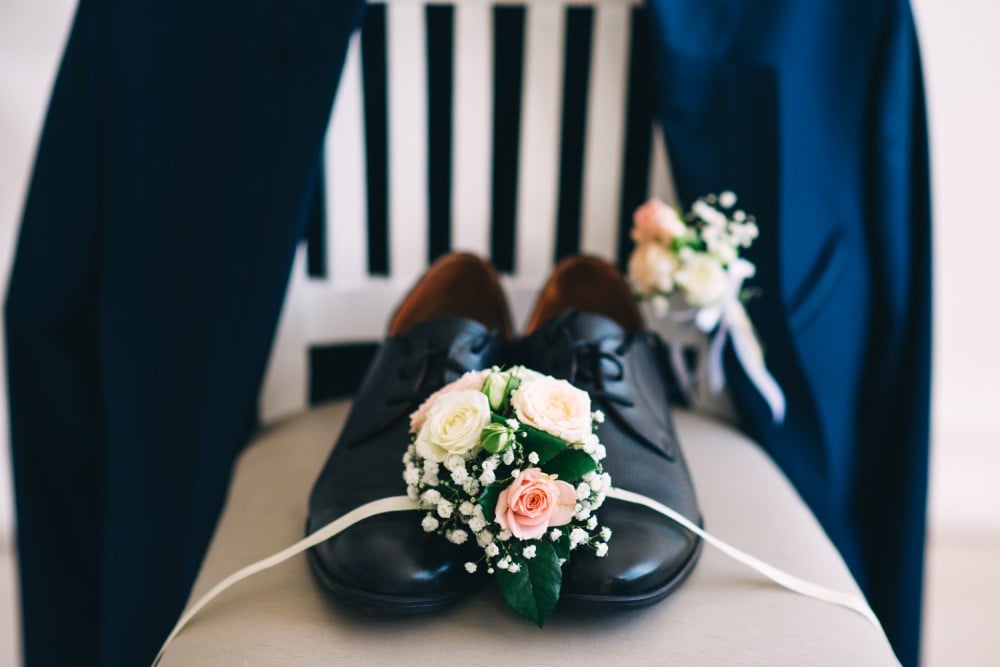 What color shoes with navy dress for Wedding ?08/20/2023Posted in: Wedding Fashion & StyleMatching shoe color with navy dress When teaming shoe color with a navy dress, it's essential to decide on a hue...Read more
What color shoes with navy dress for Wedding ?08/20/2023Posted in: Wedding Fashion & StyleMatching shoe color with navy dress When teaming shoe color with a navy dress, it's essential to decide on a hue...Read more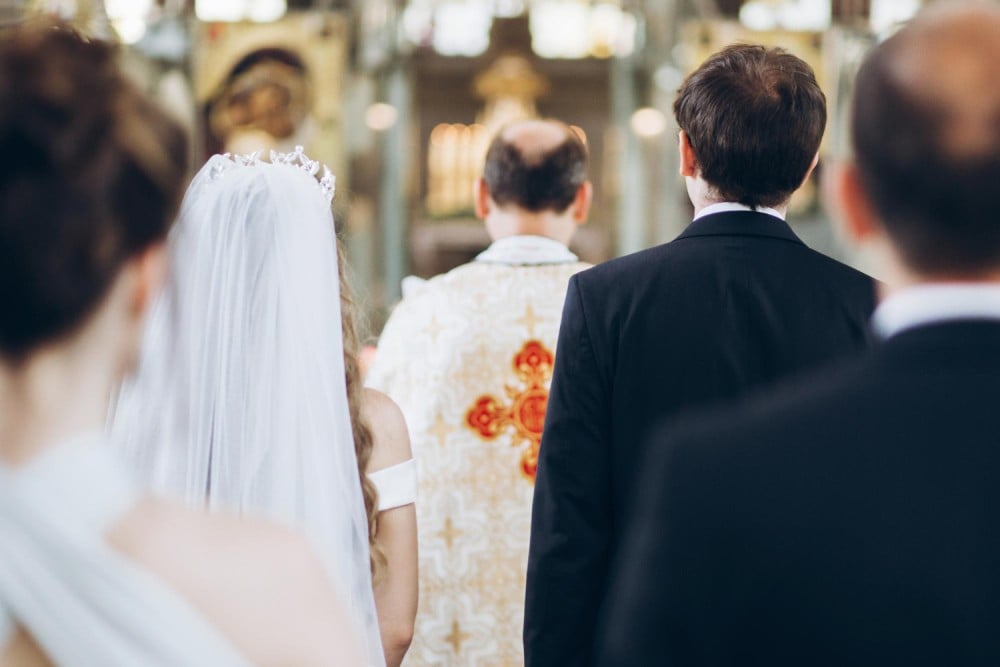 What to wear to a Church Wedding ?09/04/2023Posted in: Wedding Fashion & StyleAre you attending a church wedding and unsure about the dress code? Our latest article provides a deep dive into the...Read more
What to wear to a Church Wedding ?09/04/2023Posted in: Wedding Fashion & StyleAre you attending a church wedding and unsure about the dress code? Our latest article provides a deep dive into the...Read more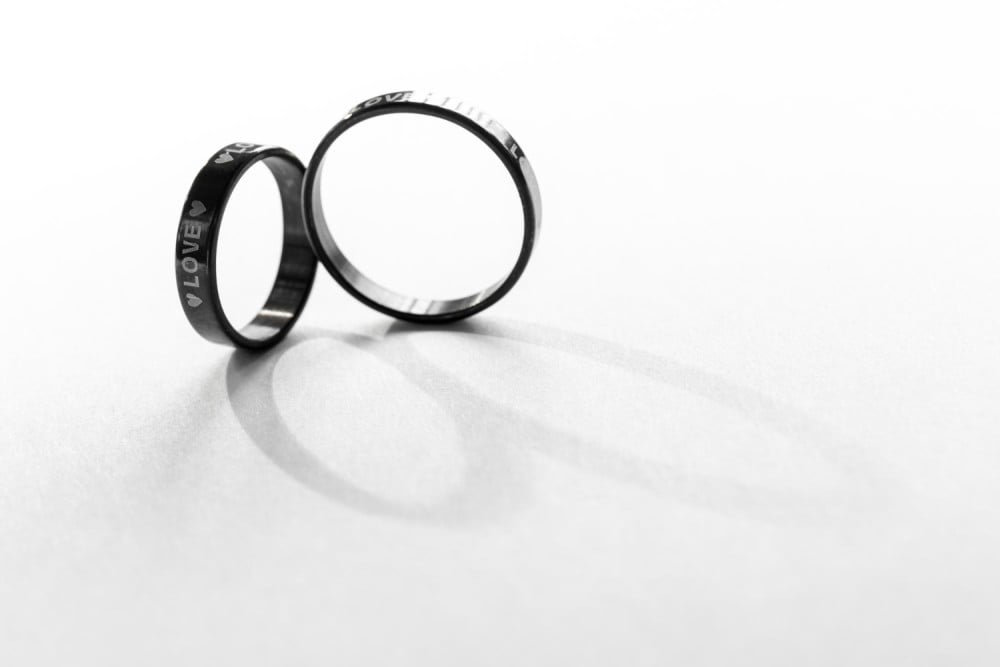 What does a black wedding ring mean ?06/12/2023Posted in: Miscellaneous Wedding AspectsWedding rings are a traditional symbol of love and commitment, but their style and design can vary greatly. In recent...Read more
What does a black wedding ring mean ?06/12/2023Posted in: Miscellaneous Wedding AspectsWedding rings are a traditional symbol of love and commitment, but their style and design can vary greatly. In recent...Read more How to become a wedding officiant in tennessee ?06/27/2024Looking to become a wedding officiant in Tennessee but not sure where to start? This comprehensive guide will walk...Read more
How to become a wedding officiant in tennessee ?06/27/2024Looking to become a wedding officiant in Tennessee but not sure where to start? This comprehensive guide will walk...Read more How to bustle a tulle wedding dress ?05/21/2024Posted in: Wedding Fashion & StyleAre you a bride-to-be with a tulle wedding dress and wondering how to bustle it for the big day? Look no further!...Read more
How to bustle a tulle wedding dress ?05/21/2024Posted in: Wedding Fashion & StyleAre you a bride-to-be with a tulle wedding dress and wondering how to bustle it for the big day? Look no further!...Read more Planning Your Honeymoon Tips for an Unforgettable Trip05/20/2024Posted in: Wedding PreparationsPlanning your honeymoon is an exciting and important step in beginning your life together as a married couple. From...Read more
Planning Your Honeymoon Tips for an Unforgettable Trip05/20/2024Posted in: Wedding PreparationsPlanning your honeymoon is an exciting and important step in beginning your life together as a married couple. From...Read more The Dos and Donts of Wedding Guest Etiquette05/16/2024Posted in: Wedding Traditions & EtiquettePlanning to attend a wedding soon? Make sure you brush up on your wedding guest etiquette to ensure you have a great...Read more
The Dos and Donts of Wedding Guest Etiquette05/16/2024Posted in: Wedding Traditions & EtiquettePlanning to attend a wedding soon? Make sure you brush up on your wedding guest etiquette to ensure you have a great...Read more The Importance of PreWedding Counseling What You Should Know05/13/2024Posted in: Wedding PreparationsAre you and your partner considering pre-marriage counseling but not sure what to expect? This article is here to...Read more
The Importance of PreWedding Counseling What You Should Know05/13/2024Posted in: Wedding PreparationsAre you and your partner considering pre-marriage counseling but not sure what to expect? This article is here to...Read more








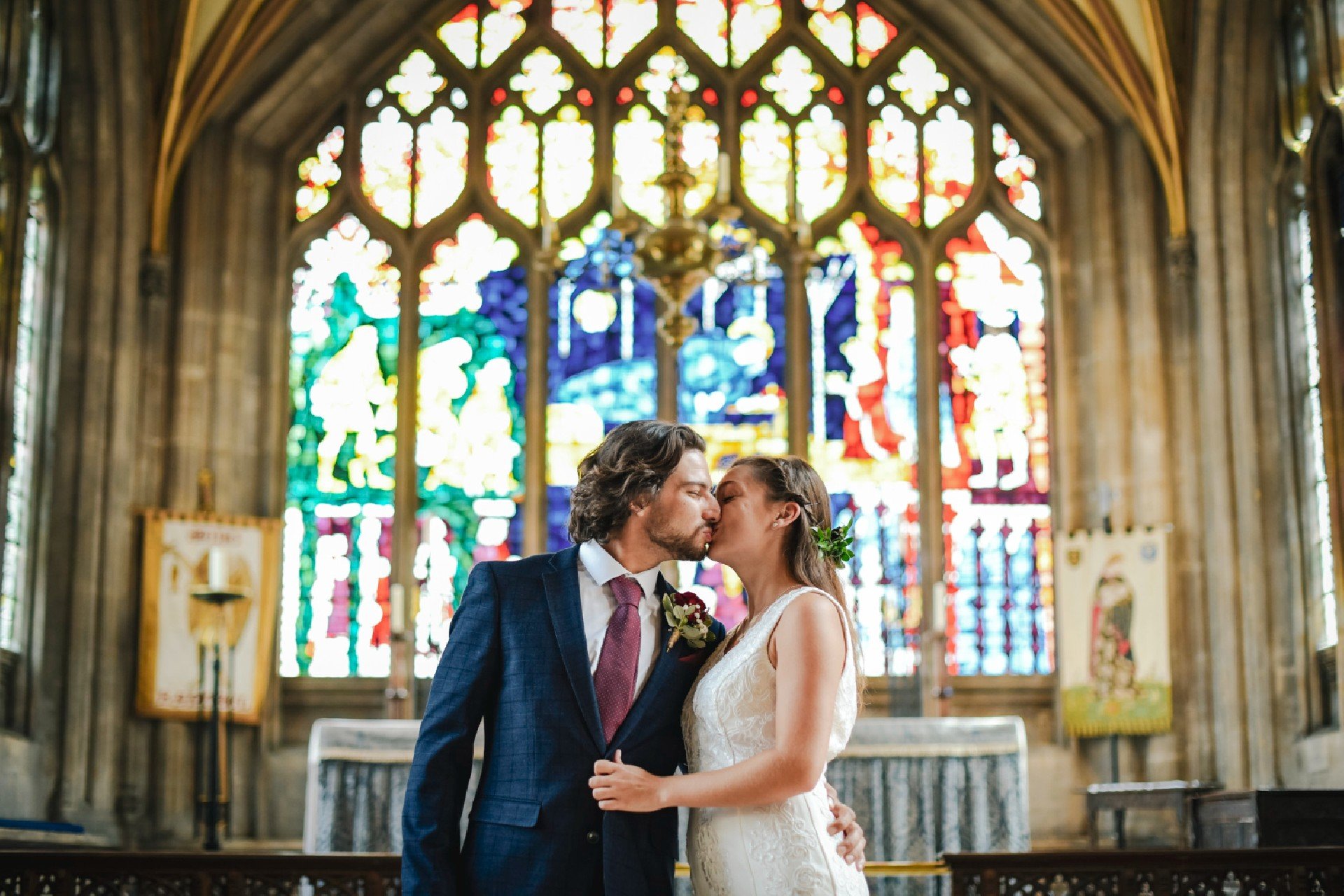



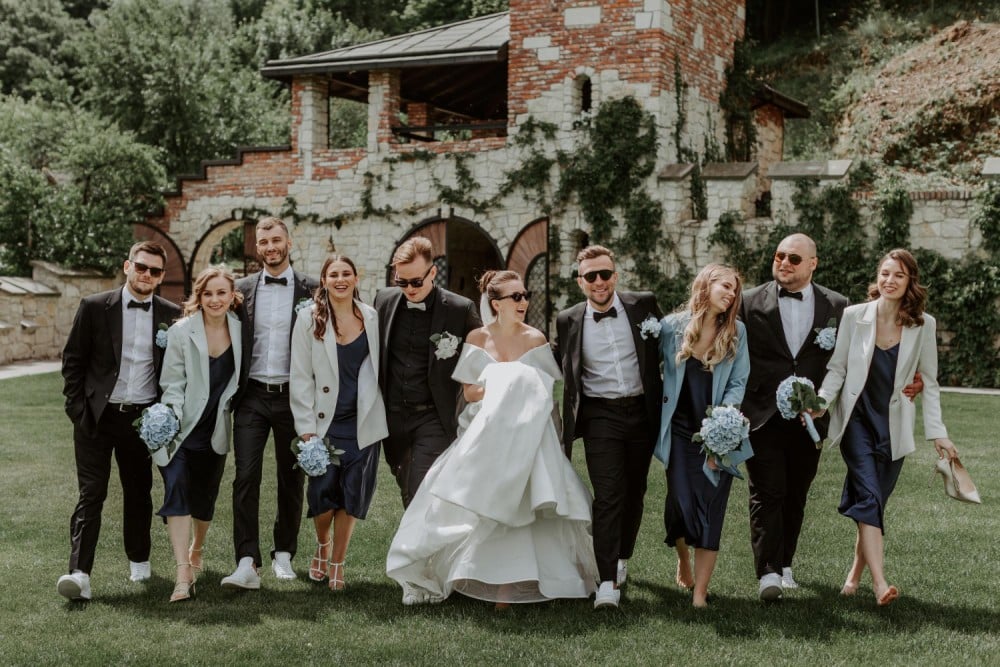
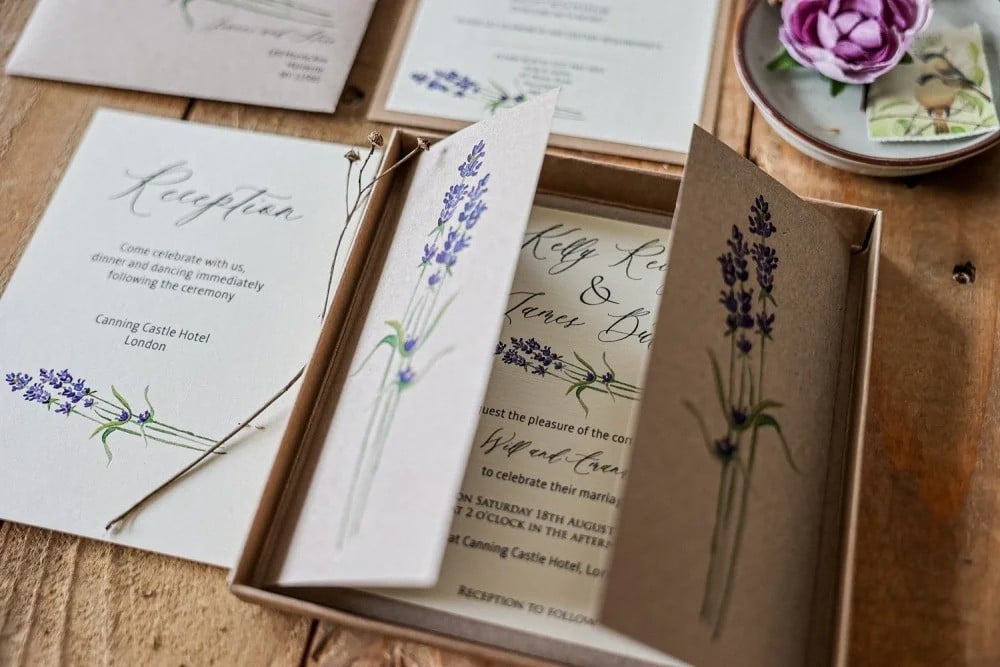

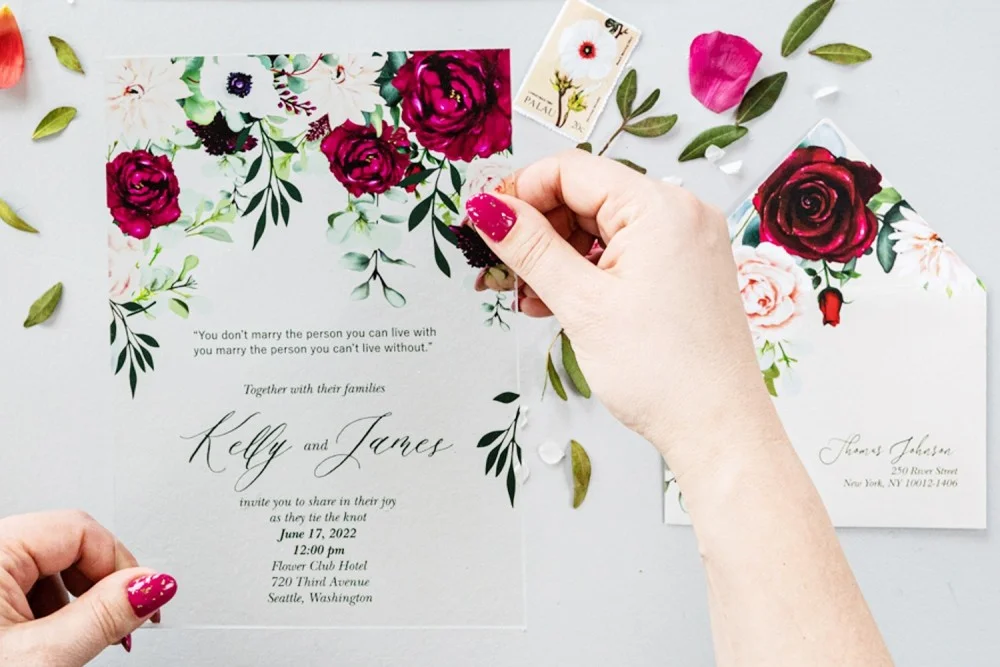

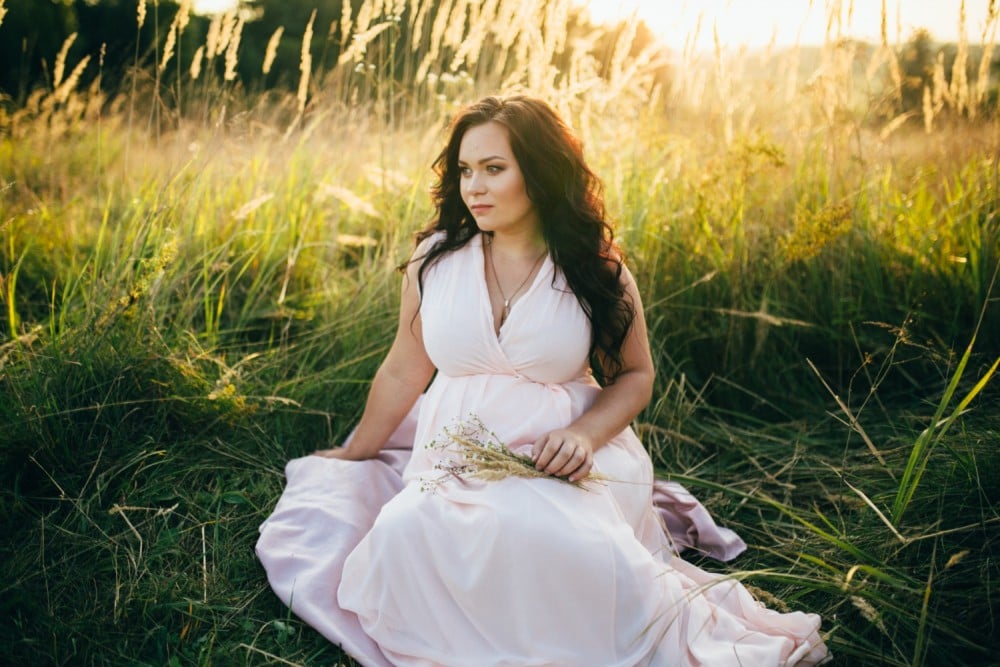
Top authors